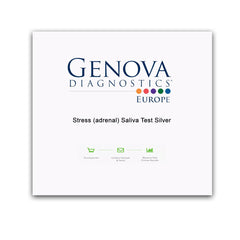Health Conditions : Fatigue
Most of us have felt, at some time like we’re running on empty, perhaps due to a hectic week at work or a few late nights on the run.
For others, low energy can be more persistent and ongoing. The nutripharmdirect tiredness check can help understand if this may be caused by low iron, vitamin D or low B12
Dietary advice
If you’re looking for simple ways though to improve energy levels through your diet, here’s a few tips to get you started:
• Feed Your Mitochondria – Energy happens as a result of a series of chemical reactions in the body; food is broken down into its component parts, and these are combusted with oxygen, to make a unit of cellular energy called ATP. This process happens inside the energy-making powerhouse, the mitochondria in every single cell in the body and there are nutrient co-factors required at every single step. These include B Vitamins, Co Enzyme Q 10, N-Acetyl-L-Carnitine, Malic Acid, Magnesium, Taurine and Lipoic Acid.
• Boost Your Intake of Antioxidants – Antioxidants help to protect the mitochondria from free radical damage and can help to maintain it’s optimal function. Key antioxidant nutrients include vitamins C & E, Glutathione, Alpha Lipoic Acid, N-Acetyl-Cysteine, Co-Enzyme Q 10 and polyphenols from grapeseed extract. Choose a diet rich in organic, brightly-coloured fruits and vegetables to boost your intake of key antioxidants.
• Magnesium – Low energy is a classic sign of magnesium deficiency. With the typical Western diet performing poorly on the magnesium front, it’s worth adding in a powder supplement in the form of glycine if you think you might be running low. Magnesium-rich foods include leafy greens, legumes, nuts and seeds and wholegrains.
• Support Your Stress System – One of the first signs of stress overload is low energy – with the body struggling to meet the nutrient demands of the stress response and compromising energy production as a result. B vitamins, vitamin C and magnesium to keep your stress system in balance and to boost your energy levels at the same time.
• Cut Out Quick ‘Energy’ Fixes such as caffeine, nicotine, alcohol and sugary drinks and snacks. Ironically these are often the first things people reach for when they’re flagging, yet in reality, are probably the worst choice you can make. Quick-fixes such as caffeine and sugary snacks will give a short-lived energy boost followed by a fairly dramatic energy crash leaving you feeling worse than when you started. Instead, opt for regular meals and snacks made up from complex ingredients; wholegrains, high quality proteins, fresh fruits and vegetables, nuts, seeds and oily fish.
A blood tiredness check can help identify if you are low in iron ( ferritin), B12 and vitamin D. An adrenal stress test can check if the fatigue is causing further issues.
Recommended tests
Best sellers






